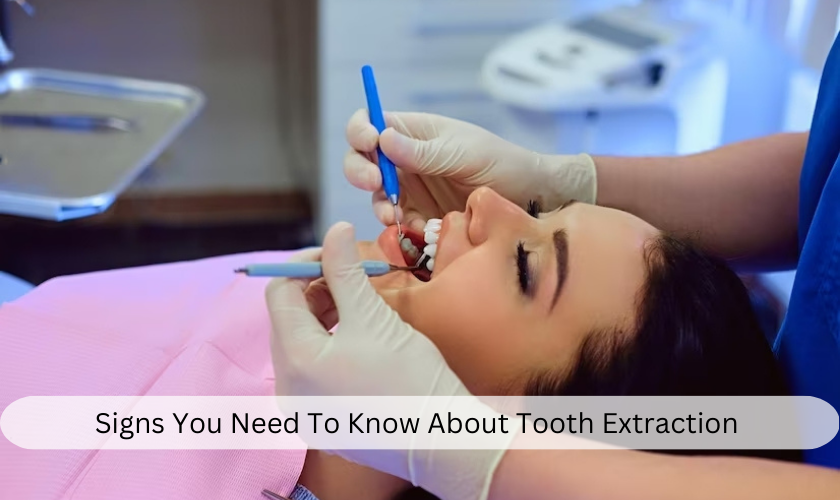
Introduction: Tooth extraction is a common dental procedure that involves removing one or several teeth from the mouth. Tooth extractions are often performed due to decay, damage or overcrowding of teeth. Tooth extractions can also be necessary if there is an infection in the mouth that cannot be resolved with antibiotics. It is important to know when it might be necessary to undergo a tooth extraction and the signs that should prompt you to visit your dentist for further evaluation.
There are several signs that can indicate that a tooth extraction should be performed. The most obvious sign is when your tooth is in pain or starts to throb. Tooth pain can be caused by a number of different problems, but it could also be an indication of a more serious underlying condition such as infection or decay. Other signs of tooth decay or infection include sensitivity to hot and cold beverages, unusual bad breath, and discoloration of the teeth.
If you are experiencing pain that is lasting for more than a few days, it could be an indicator that tooth extraction should be considered. Tooth pain can also be caused by crowding in the mouth, so if you find that your teeth are becoming difficult to brush or floss, this could be another sign that extraction is necessary. If you notice any of these signs, it is important to visit your dentist as soon as possible for further evaluation.
When undergoing a tooth extraction procedure, the affected tooth will first be numbed using a local anesthetic. Once the anesthesia has taken effect, your dentist will use special instruments to carefully remove the tooth from its socket. Depending on the complexity of the case, you may need to undergo a surgical extraction if there are complications such as bone or gum tissue that needs to be removed. After the tooth is extracted, your dentist may place a gauze pad in the affected area to help with any bleeding.
Once the tooth extraction is complete, it is important to follow your dentist’s aftercare instructions to reduce the risk of infection and help promote healing. This typically involves avoiding eating hard or chewy foods for a few days after the procedure. You should also be sure to brush and floss your teeth gently, as vigorous motion can dislodge the clot that forms in the empty socket. It is also important to take any prescribed medications, such as antibiotics, as directed by your dentist to prevent infection.
Q: What are the risks associated with tooth extraction?
A: Tooth extractions typically have a low risk of complications. However, potential risks include infection, bleeding, and nerve injury. Your dentist will discuss these risks with you prior to the procedure so that you can make an informed decision about whether or not to proceed with it.
Q: How long does it take to recover from tooth extraction?
A: Tooth extractions usually cause mild discomfort for a few days after the procedure. You should have a full recovery within 10-14 days, depending on the complexity of your case.
Q: Will I need a replacement for my extracted tooth?
A: Depending on the location of your extracted tooth and the cause of extraction, you may need to have a dental implant or bridge placed in its place. Your dentist can discuss with you the best options for restoring your smile after Tooth extraction.
Tooth extractions are often necessary to remove teeth that are damaged, decayed, or overcrowded. While it is important to visit your dentist for regular examinations and cleanings, it is also important to be aware of the signs that may indicate Tooth extraction is necessary. Understanding the procedure, aftercare instructions, and potential risks can help you make an informed decision about whether Tooth extraction is right for you. If you experience any pain or other signs that Tooth extraction may be necessary, it is important to visit your dentist as soon as possible for an evaluation.